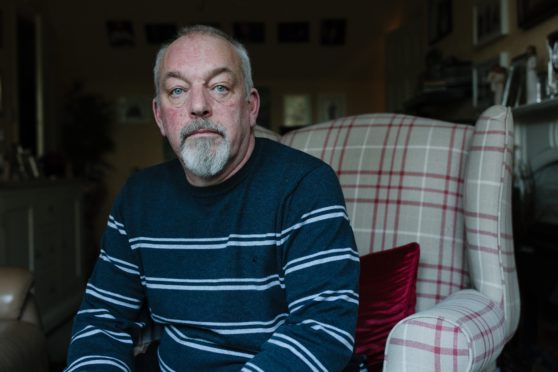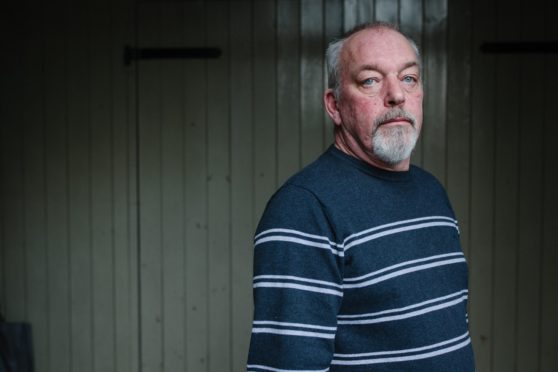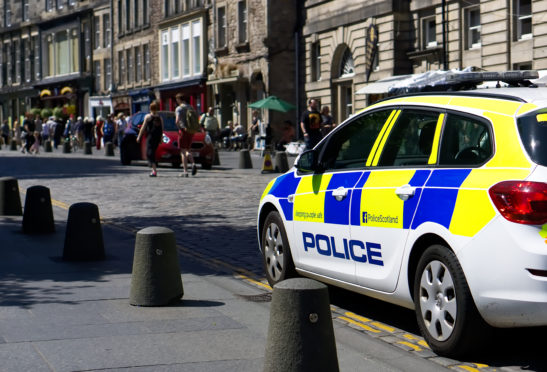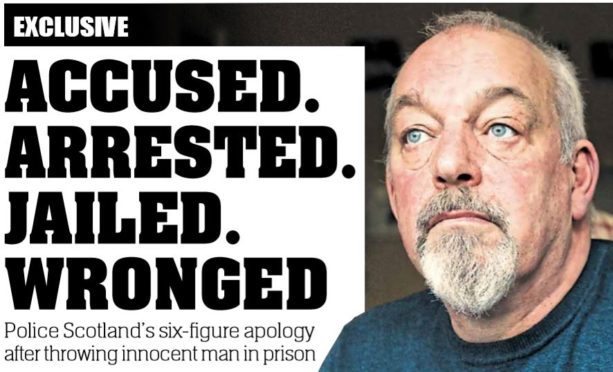
A police officer accused over an “outrageous” wrongful arrest is suing investigators, claiming he was wrongfully arrested.
Sergeant Barry Scott is taking the Police Investigations and Review Commissioner to court claiming his detention was unlawful and unnecessary. He was one of five officers held by the standards watchdog investigating how, in a case of mistaken identity, an innocent man was taken from his home, driven across country, held in a cell then remanded in prison before police and prosecutors finally accepted they had the wrong man.
We told in January how Gary Webb, 60, a former timber yard manager with no criminal convictions, received damages in excess of £100,000 from Police Scotland in an out-of-court settlement over his ordeal. He was arrested despite having no criminal record, and his passport and other documents proving his identity. The real suspect also had distinctive tattoos.
Mr Webb yesterday described the claim for damages by one of the officers involved as “ludicrous”.
Five police officers involved in Mr Webb’s detention were arrested and reported to the Crown Office by the Police Investigations and Review Commissioner (PIRC) on allegations of criminal neglect of duty and attempt to pervert the course of justice but the Crown Office decided last year they would not face prosecution.
Sgt Scott’s case, which names former PIRC Kate Frame but is against the office of the PIRC, called last month at Hamilton Sheriff Court civil department and will call again for a proof hearing. If successful, it could pave the way for similar actions by the four other officers arrested.
A source close to the case said: “The officers are from various police divisions and, when the PIRC investigation began, agreed to attend voluntarily at Livingston police station.
“They thought they were going to give a statement but, when they got there, they were told by PIRC staff they were being arrested. They had their liberty taken and that is what is under dispute.” The officers were kept within interview rooms, interviewed then released. They were informed last year, after a lengthy investigation, that they would not be prosecuted.
The damages case is thought to be the first time since its formation in 2013 the PIRC has been taken to court by police. Ms Frame stepped down from her role last year.
We told in January how Mr Webb, 60, was confronted at his home in Gatehouse of Fleet, in Dumfries and Galloway, at 9pm on April 9, 2015, by two detective constables with a court warrant for the real suspect. They held a photo of the suspect next to Mr Webb’s face and deemed them, wrongly, to be the same person. Mr Webb was arrested, handcuffed and locked up for four days at HMP Addiewell before he was told all charges had been dropped.
Mr Webb said yesterday: “Police Scotland’s behaviour has been despicable and my life has been trashed. What happened to me was outrageous and it’s ludicrous to think this officer feels entitled to compensation. How can he think he has a case when the facts of the PIRC investigation are very clear? It beggars belief. How can he think he has a case after what I went through?
“He should consider the treatment I was subjected to and then consider what happened to him before trying to accused the PIRC of wrongdoing.
“My life was irreversibly affected by the actions of the police and raising their own case against the PIRC just adds insult to injury.” The officer’s case is being backed by the Scottish Police Federation, which represents officers up to and including the rank of chief inspector.
David Kennedy, deputy general secretary of the Scottish Police Federation, said: “We will continue to represent our members in this case where they have acted in good faith and been treated horrendously. We are unable to comment further due to ongoing legal proceedings.”
The Crown Office was contacted for comment. The case is due in court next month.
Mr Webb raised a legal action and alerted the PIRC after Police Scotland logged his complaint to them over his ordeal as a “quality-of-service” issue and told him it was not being upheld. He was awarded damages in excess of £100,000 after his lawyers argued police acted illegally. None of the officers faced disciplinary action.
The actual suspect was arrested a few weeks after Mr Webb was released from prison. It is thought Mr Webb was wrongly identified as the suspect, who was facing serious criminal charges, because of aliases used by the suspect. However, Mr Webb did not have tattoos like the suspect and his passport and fingerprints were also checked by police and showed he was not the suspect.
It’s understood the court prosecutor proceeded with the request to have Mr Webb remanded under guidance from a senior Crown Office prosecutor, Wendy Barr, who had been briefed by police convinced they had the right man.
In 2018, Ms Frame said the way police had dealt with it was “an illustration of Police Scotland’s unwillingness to recognise serious failings…to address matters and suggests an endeavour to keep those matters hidden”.
Mr Webb’s lawyer, Gordon Dalyell, a partner at Digby Brown and specialist in miscarriages of justice, said: “For the police officers involved in this case to raise their own claim is controversial to say the least. There are questions about accountability here, especially relating to police officers who the public arguably expect to operate at a higher ethical and legal standard.”
He and politicians have called for an inquiry. PIRC said: “As there are live legal proceedings, it would be inappropriate to comment.”
Police Scotland said: “We are not party to these proceedings.”

Enjoy the convenience of having The Sunday Post delivered as a digital ePaper straight to your smartphone, tablet or computer.
Subscribe for only £5.49 a month and enjoy all the benefits of the printed paper as a digital replica.
Subscribe

